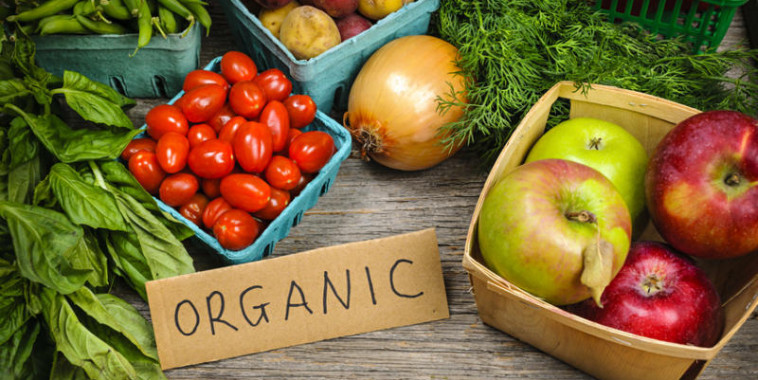Are you jumping on the organic food bandwagon? Today’s new fad is to eat all organic because it is the healthy thing to do. But what exactly does it mean when you buy something that is organic? And just how healthy and safe is it for you?
Facts about organic products:
Organic food means that the food produced is practiced using organic farming methods. This means that when farming these products, resources are recycled and that the use of pesticides and chemical fertilizers – substances used on conventional products – are not allowed.
There has been much debate surrounding whether these pesticides found on conventional foods are safe for consumption. Research suggests that although fewer pesticides and chemicals are found on organic food products, there is no evidence that indicates organic products are safer to eat because of it.
It’s a fact that organic produce has far fewer pesticides and pathogens than conventional produce. However, does that fact have any meaning when it comes to safety for human consumption? If you’ve eaten conventional produce your whole life, tests have suggested that there aren’t any real health concerns linked with this long exposure.
Others question whether this is true? Some scientists and researchers say that exposure to organophosphates may cause neurological issues in infants and children. Several studies have concluded, however, that there isn’t evidence to link the two.
What about pathogens?
Some studies have found that the pathogen E. Coli is more prevalent in organic produce than it is conventional. However, researchers aren’t suggesting you buy just conventional because of this reason, or just organic because of the fewer pesticides.To conclude, if you want fewer pesticides on your produce, go with the organic option. But remember, it is important that you cook your food, which can help reduce any of the pathogens that cause foodborne illness.
Overall, there is a very small percentage of meat that contains chemicals and antibiotics. Both organic and conventional meats do have pathogens, however. Organic products tend to have pathogens relating to the fact that antibiotics aren’t used on the animals. On the other hand, conventional meats contain antibiotic-resistant bacteria because the animals were given antibiotics. Whether one is better for you is not the question because both can be equally safe as long as the meat is properly cooked.
Nutritionally, organic produce tends to have more nutrients like iron, Vitamin C, and zinc. Some researchers will tell you otherwise. Other organic products that are more nutritious than the conventional version are eggs, most meats and milk. These common staple items tend to contain more omega-3 fatty acids, which are “good” fats that help to reduce cholesterol levels.
Is it safer to buy organic? Is it healthier?
Maybe, maybe not. Some suggestions given to consumers are to buy a mix of both organic and conventional products. While there is slightly better nutritional content in organic foods, pathogens seem to be more common in organic than in conventional food products. Cook your food thoroughly. The discrepancies between meat pathogens can be confusing. Don’t spend too much time worrying about the pathogens found in both organic and conventional meat. Rather, cook it thoroughly to ensure you kill these harmful bacteria. Safe food handling practices are necessary when buying produce. Wash and cook vegetables and fruit always.
And keep eating healthy!







